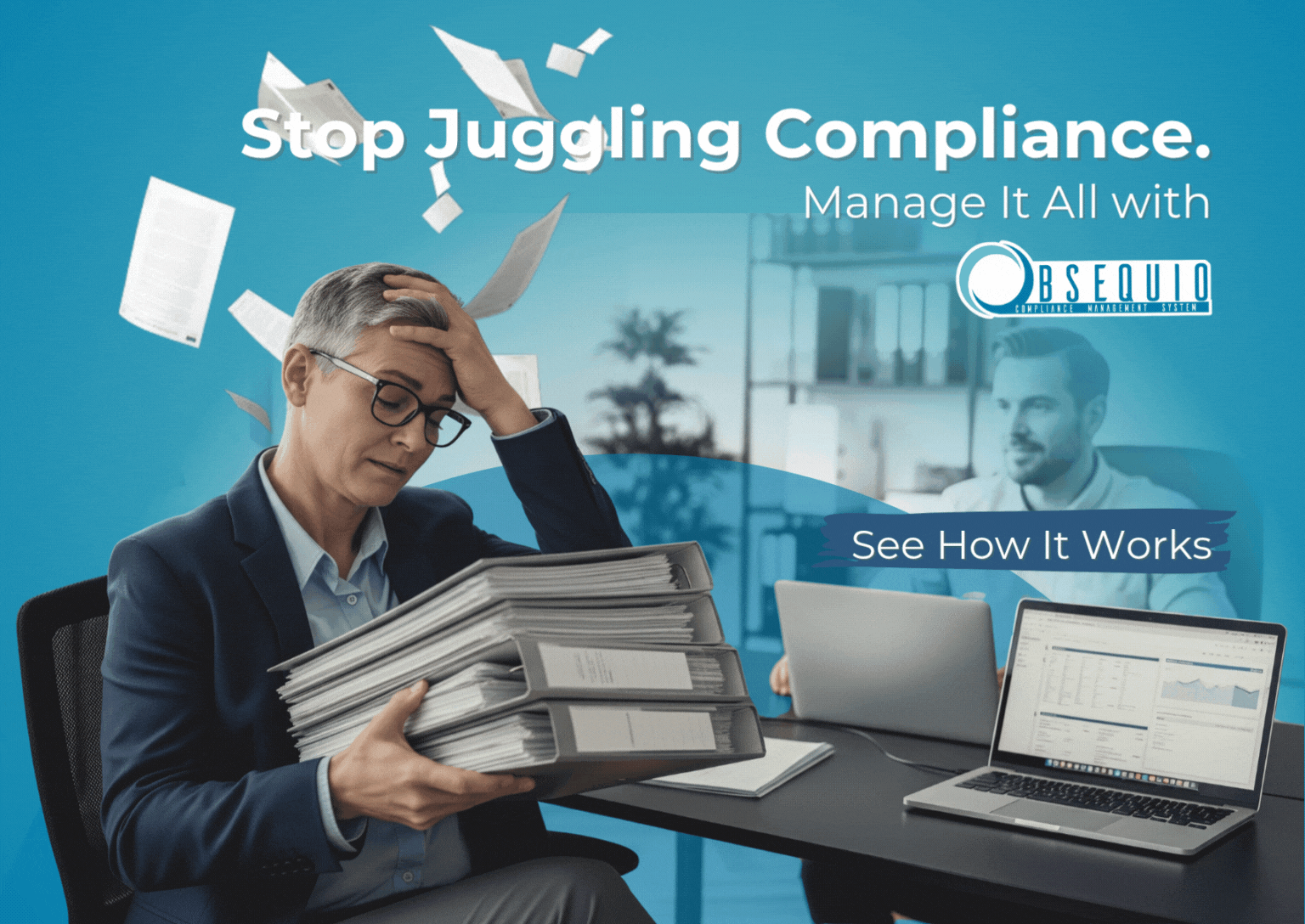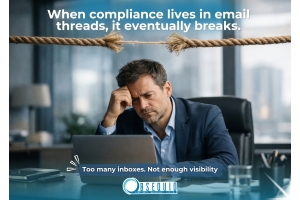News
-
Posted: February 02, 2026Read more »
Most security, fire, and life safety companies do not intend to manage compliance poorly. It usually begins with simple tools that seem practical at the time, a shared spreadsheet for licenses, a folder for CEU certificates, and a few calendar reminders for renewals. For a while, that system works.
Then the company grows.
New technicians come on board, projects expand into additional states, and insurance documents, background checks, and training records begin piling up across inboxes and shared drives. What once felt organized turns into fragmented information scattered through email threads, personal folders, and outdated files. At that point, compliance is no longer a clear process. It becomes a scavenger hunt.
The real risk is not inconvenience, it is visibility. Without a single reliable source of truth, deadlines are missed, documentation disappears,
-
Posted: January 31, 2026Read more »
In the security, fire, and life safety industries, continuing education is required. Every technician needs CEUs to stay licensed. The bigger question is whether those CEUs actually improve performance in the field.
Too many providers recycle generic technical content, attach a state approval number, and call it training. It satisfies requirements but rarely builds skill. Effective education should sharpen judgment, improve safety, and increase confidence on real job sites. Anything less is just checking a box.
The Problem With Generic CEU Programs
Generic CEU programs are designed for broad audiences, which means they rarely fit regulated trades. They rely on vague language, outdated standards, and limited real-world context. For professionals installing and maintaining security and fire systems, that type of training falls short quickly.
-
Posted: December 10, 2025Read more »
Every security business hits a ceiling at some point. For many dealers and integrators, that ceiling isn’t a lack of customers or technicians, it’s compliance. As companies grow across multiple states, keeping licenses, CEUs, and background checks organized becomes a full-time job. The result is an invisible bottleneck that eats time, adds cost, and quietly slows down every other part of the operation.
Manual compliance management might seem manageable at first. A few spreadsheets here, a shared drive there, maybe some reminders set in Outlook. But as soon as you start adding technicians, new markets, and more regulations, the system starts to fail. Renewals get missed, CEU records go unverified, and managers lose visibility into who’s cleared to work. That disorganization creates stress and directly impacts revenue and reputation.
The Hidden Cost of Manual Tracking
-
Posted: December 10, 2025Read more »
In the security, fire, and life safety industries, continuing education is not optional. Every technician knows they need CEUs to stay licensed and compliant. But here’s the real question: do those CEUs actually make anyone better at the job?
Too often, the answer is no. Many online CEU providers recycle generic technical content, slap a state approval number on it, and call it training. It meets the letter of the law but misses the point of professional development. Real training should sharpen skills, improve safety, and build confidence in the field. Anything less is just checking a box.
The Difference Between Generic and Industry-Built Training
Generic CEU programs are built for everyone, which means they are built for no one. They use broad language, outdated standards, and limited context for real-world application. For security professionals who install, monitor, or maintain systems
-
Posted: September 22, 2025Read more »
Every state has its own rules. Some require annual CEUs, others renewals every two years, and many tack on specific topics like false alarm reduction or fire safety. If you work across multiple states, the requirements multiply until keeping track of them becomes a full-time job.
Generic training providers don’t solve this problem. They offer broad, one-size-fits-all courses that may check boxes in one state but leave you out of compliance in another. The result is wasted hours, missed renewals, and technicians who can’t get back in the field until paperwork is sorted.
That is why SecurityCEU.com exists.
The Problem With Generic Training
Security, fire, and life safety are not general industries. They are regulated,
-
Posted: September 01, 2025Read more »
Licensing and continuing education requirements are a fact of life in security, fire, and life safety. But here’s the problem: most generic training providers don’t understand the unique rules, certifications, and licensing hoops this industry has to jump through. That leaves integrators, dealers, and monitoring centers trying to make “good enough” training fit a world it wasn’t built for. Spoiler: it doesn’t fit.
That’s why SecurityCEU exists. Every course, every compliance feature, and every LMS customization was designed with one industry in mind — yours.
Why Generic Training Doesn’t Cut It
Security isn’t accounting. It isn’t HR. It isn’t general business management. The skills required to install, monitor, and maintain security and fire systems demand a very specific
-
Posted: August 22, 2025Read more »
The Hidden Cost of Compliance Gaps in the Security Industry
Compliance isn’t optional for security dealers and integrators. It’s the baseline that keeps technicians licensed, businesses legal, and contracts enforceable. Yet across the U.S., regulations vary widely by state and are subject to sudden change. The result is a moving target that leaves even well-run companies exposed.
That’s why Obsequio exists—to take the chaos out of compliance. Instead of chasing updates across states or juggling spreadsheets, Obsequio gives integrators and dealers a single system to track, renew, and prove compliance. It’s built specifically for the security industry, so you can focus on growing the business instead of fighting paperwork.
Regulators have made it clear
-
Posted: July 25, 2025Read more »
What techs need to know before tackling the first rung of NICET certification.
There comes a point in most fire alarm technicians’ careers when hands-on experience isn’t enough. Whether you’re looking to move up, meet licensing requirements, or simply prove you know what you’re doing, getting NICET certified becomes part of the path. And for that, Level I is where it all starts.
The good news? You don’t have to go it alone—or dig through dry PDFs, outdated flashcards, and 30-year-old code references to figure out what’s on the test.
Our NICET Fire Alarm Level I Prep Course is built for working techs who are ready to take that next step without wasting time.
If you’re serious about getting
-
Posted: July 24, 2025Read more »
Regulatory change is the constant that security integrators and dealers cannot ignore. One week, licensing requirements in a key state seem familiar. The next, a new mandate appears, a deadline moves, or an entire process is rewritten. The stakes are high. According to a 2017 Ponemon Institute study, the average cost of non‑compliance tops $14.8 million per year for U.S. businesses—nearly three times more than staying compliant. For security companies built on trust and precision, a single missed renewal can threaten licenses, contracts, and reputation.
If you still track CEUs and license renewals by hand, you are vulnerable. Schedule your free Obsequio demo now to see how effortless compliance can be: SecurityCEU.com/Obsequio • 502‑254‑1590 ext 101
The
-
Posted: July 07, 2025Read more »
Your best technician just called with news that makes your stomach drop. The customer is asking for proof of his Axis certification for tomorrow's installation, but nobody can find the current certificate. His state license? Perfect. His manufacturer credentials? Missing in action.
Welcome to the dual compliance nightmare that's costing security companies projects, credibility, and sleep.
The Hidden Complexity of Security Industry Compliance
Security professionals operate under a compliance framework that would make accountants weep. You're not just managing one set of requirements - you're juggling multiple, overlapping compliance obligations that operate on different schedules, have different renewal processes, and require different documentation.
State Licensing Requirements Across 44 states and the District of Columbia, security















